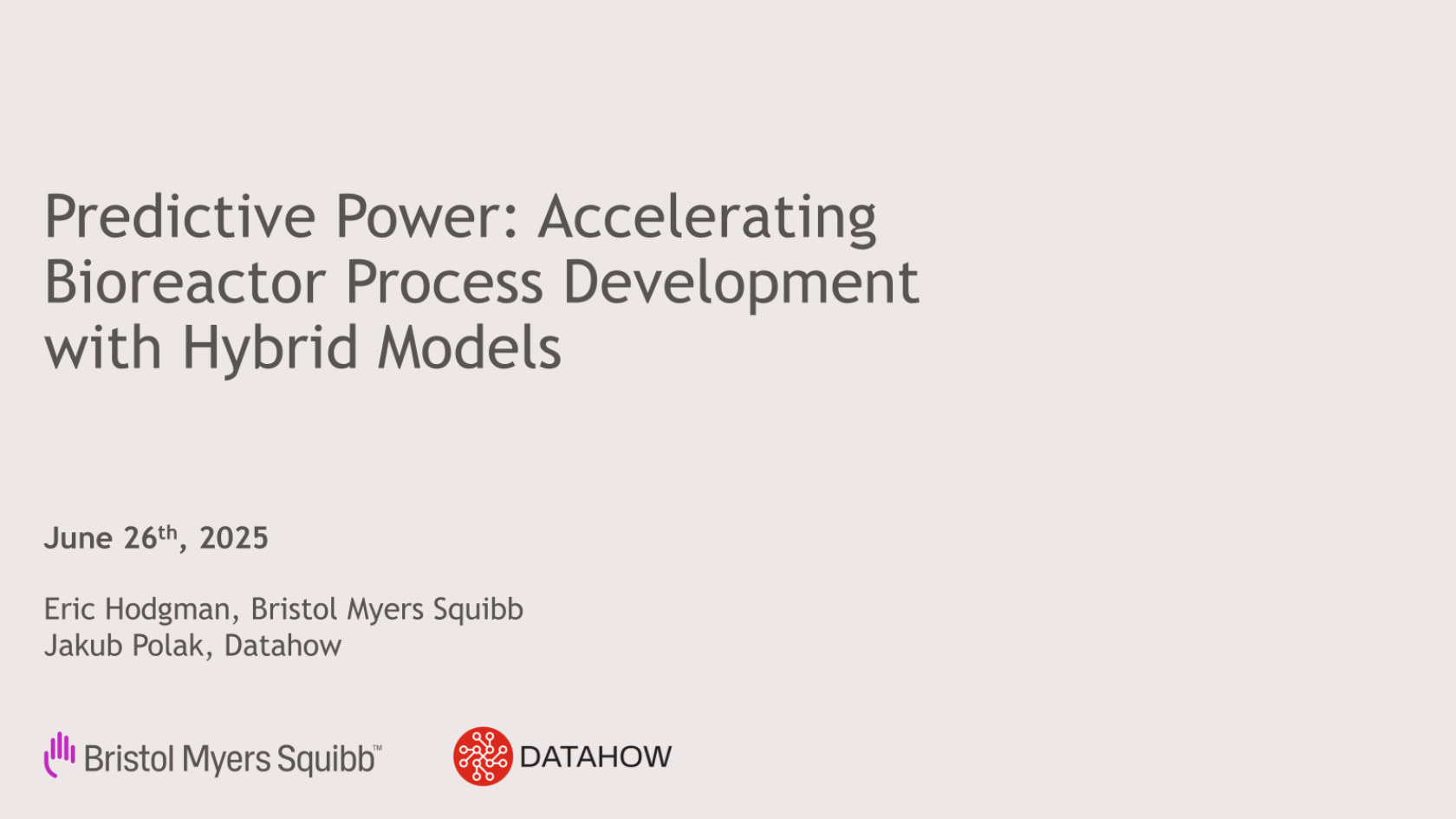Symposium 2025 Recordings
Predictive Power: Accelerating Bioreactor Process Development with Hybrid Models
Dr. Eric Hodgman & Jakub Polak
Abstract
Traditional cell culture process development starts from many wet lab experiments, which is time-consuming and costly. The hybrid model, which combines mechanistic and data-driven approaches, offers an attractive opportunity to generate representative models with limited data requirements. In this work, we developed an innovative modeling approach based on combining a propagation hybrid model with a historical data-driven model, that is, the combined hybrid model, for simultaneous prediction of CHO cell culture process dynamics and final product quality. The performance of the combined hybrid model is evaluated and compared to classical black-box models, which directly relate manipulated process parameters to final product quality. The combined hybrid model outperforms the black-box model by 33% on average in predicting the final product quality while requiring only around half of the data for model training compared to black-box models.
By employing the developed process models, we demonstrated several application studies on model-enabled knowledge transfer across CHO cell lines, modalities, and bioreactor scales. Application studies range from early phase lead clone selection to efficient commercial process development in the late phase. In summary, the findings from this work underscore that process models can be used as the basis for creating optimal experimental designs, as these tools can efficiently handle many process variables without exploding the need for associated experiments. We can then dedicate the limited experimental resources to only the most promising scenarios for efficient process development under accelerated timelines.

Digital Bioprocessing
From Innovation to Impact